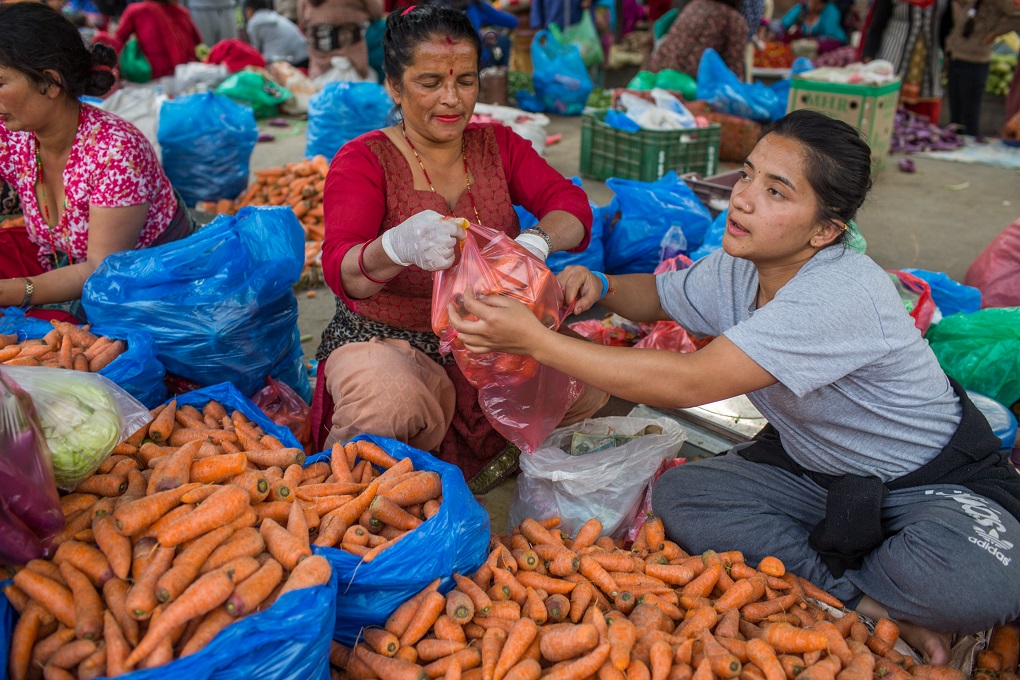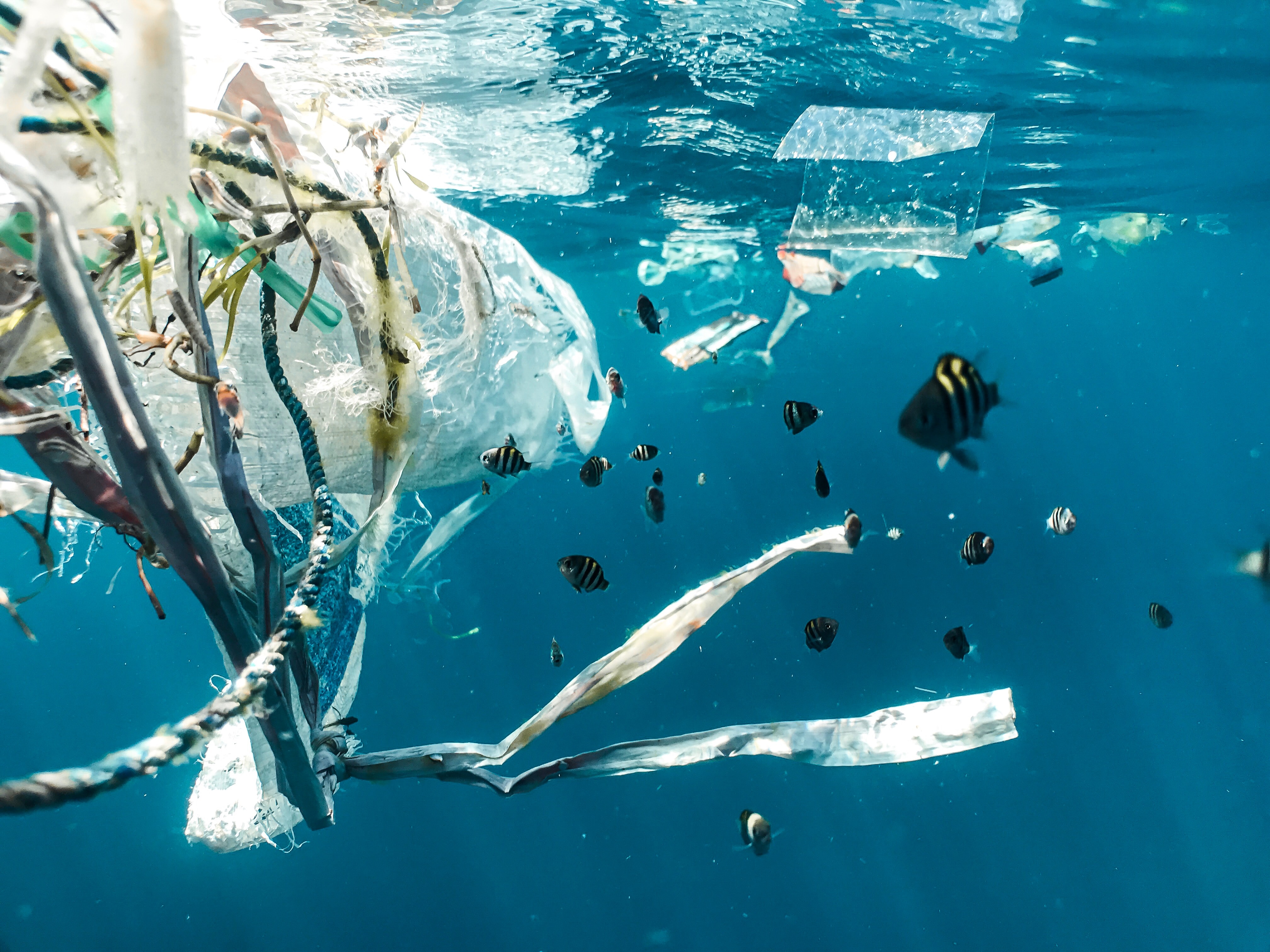In the annual budget plan speech, the government has announced a complete ban on the production, import, sale, distribution, and use of plastic bags thinner than 40 microns effective from July 16 to reduce environmental pollution from plastic products. This is the third announcement towards this end made by the federal government as the previous two announcements were limited to paper.
If the federal government’s plan had been successful, the use of plastic bags in the Kathmandu valley would have stopped and the amount of non-biodegradable waste would have been reduced by a quarter after April 2015. Consequently, rivers like Bagmati, Bishnumati, and Manohara could have become plastic-free. But, that is not the case up to now. Therefore, there are concerns galore if the new announcement would come into effect anytime soon.
Announcement and responses
This time in the budget, Finance Minister Bishnu Paudel made an announcement to prevent the plastic bag ban plan from losing its teeth like in the past.
He announced, “I have made arrangements to use cotton, jute or paper bags instead of plastic bags in all business houses including shopping malls and department stores. If any company producing plastic bags or sheets thinner than 40 microns replaces the parts of the old machine and installs a new one, a capital grant equal to the additional investment will be provided.”
The industrialists are silent about this announcement. A plastic industrialist, speaking on condition of anonymity, says, “It is not easy to control the use of plastic bags as the government has said. If an alternative is not introduced or given, it will be used illegally.”
Not only the federal government but also the local units have made such an announcement. In the policy and programme of the Kathmandu metropolitan city (KMC) for the fiscal year 2019/20, it was said that the city would be plastic-bag-free within a year. But, the KMC paralysed the plan without even monitoring the market focusing on plastic bag control once.
There are many other provincial and local governments besides the KMC making such announcements every year. However, there is zero progress in its implementation.
Factors for failures

The government decision published in the official gazette on April 1, 2015, states that the import, storage, sale, and use of plastic bags that are smaller than 20 inches in width and 35 inches in length, and thinner than 40 microns cannot be used in the three districts of the Kathmandu valley.
Accordingly, the government brought this decision into effect on April 14, 2015, and was expected to gradually extend the ban to other cities as well.
Bodies including the Department of Environment were active at that time to implement the decision. The use of plastic had started declining in the city when the police also started monitoring. Many people had started carrying bags from home while going to the shop to buy groceries and other goods.
But, the 2015 earthquake and the subsequent blockade from India jolted all the efforts to ban the use of plastics. Some business groups who were not happy with the decision turned the post-earthquake period into an opportunity to circulate banned plastic bags.
When the earthquake hit the country, thousands of people took refuge in streets and open spaces. At such times, plastic bags became handy for the government to pack and distribute relief materials.
During the blockade as well, as everyone was much worried about managing fuel and other needs, the government did not pay much attention to the market. After that, the use of plastic bags got out of control and still is.
Protests from plastic industrialists and traders against the government’s monitoring and confiscation also contributed to limiting the plastic ban decision in the papers only.
After more than three years, the issue of the plastic ban was once again raised in a 100-point priority list published by the Ministry of Forests and Environment in early 2018. The decision banned plastic bags thinner than 40 microns in the capital and 30 microns outside the valley.
But, Bharat Kumar Basnet on behalf of Explore Nepal Pvt Ltd filed a writ against the decision at the Supreme Court. On September 2, 2018, the Supreme Court ordered the government not to implement the recent ban as of now.
As a result, all types of plastic bags are in common use. None has been punished as per the Plastic Bag Regulation and Control Directive 2011 issued by the government. Nor has the government confiscated plastic bags.
The local governments, district administration office, and the Department of Commerce, and others have been directly giving free rides on the use of plastic bags while monitoring the market.
Focus on implementation

The deputy director-general of the Department of Environment, Indu Bikram Joshi, says that the control of plastic bags will be stricter this time than in the past. Meanwhile, he also mentions that much attention should also be paid to the production of alternative bags and to replacing the thin plastic bags by changing the behaviour of the consumers.
“We are yet to decide how we will work, but we will not allow the use of the banned bags to be used this time around by making an action plan. Our inspectors will be monitoring the market from July 16 itself.”
Further, he adds that packaging plastics used to wrap noodles and biscuits are also a problem for the city and legal arrangements are being made to make their industry responsible for managing such plastics.
The department has concluded that both traders and consumers are choosing plastic bags due to a lack of suitable alternatives. Environment-friendly paper, cotton, allo, jute bags are not available in the market at easy prices. Joshi says that consumers accustomed to plastic should get in the habit of carrying bags from home to the market.


























